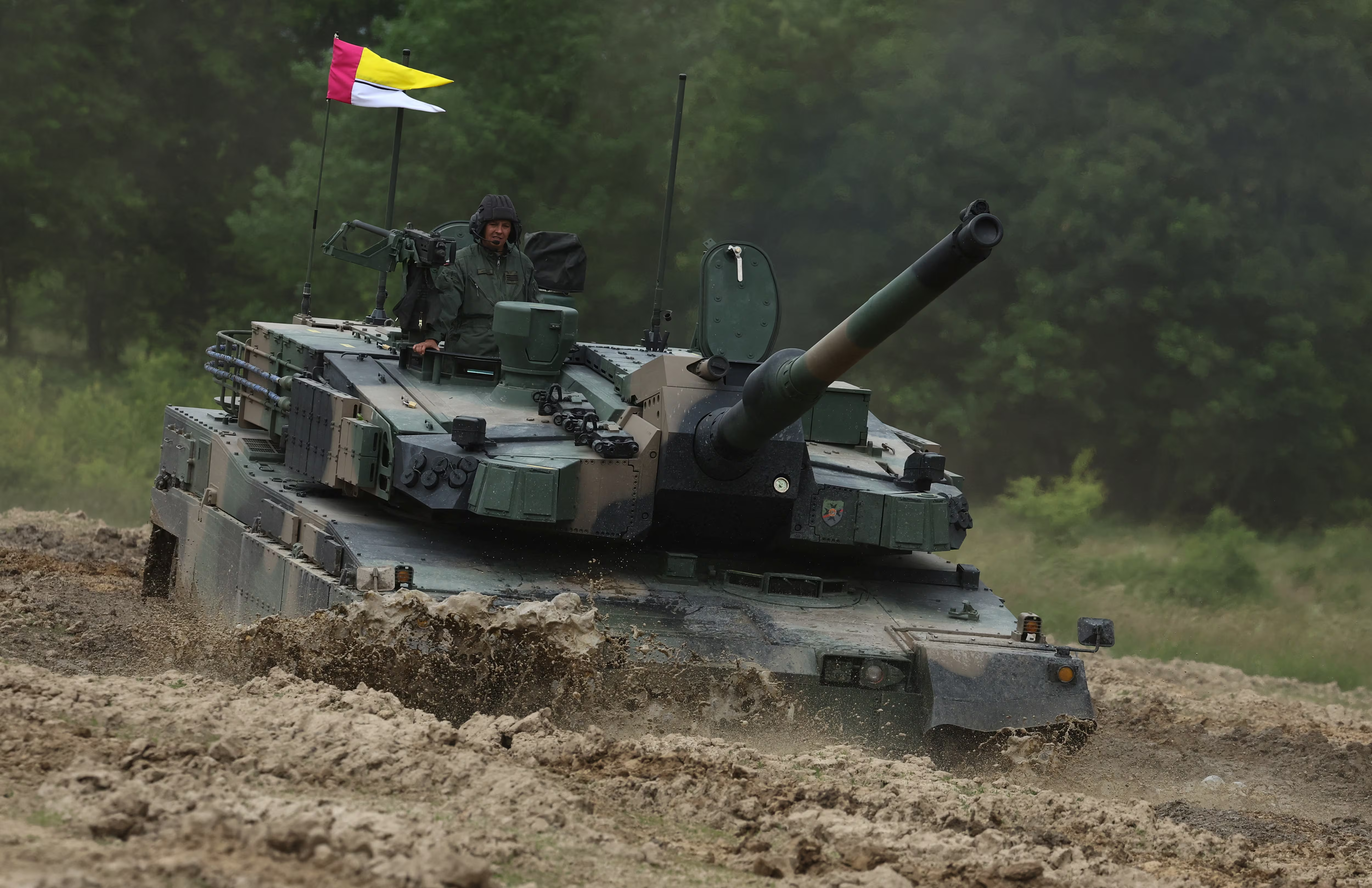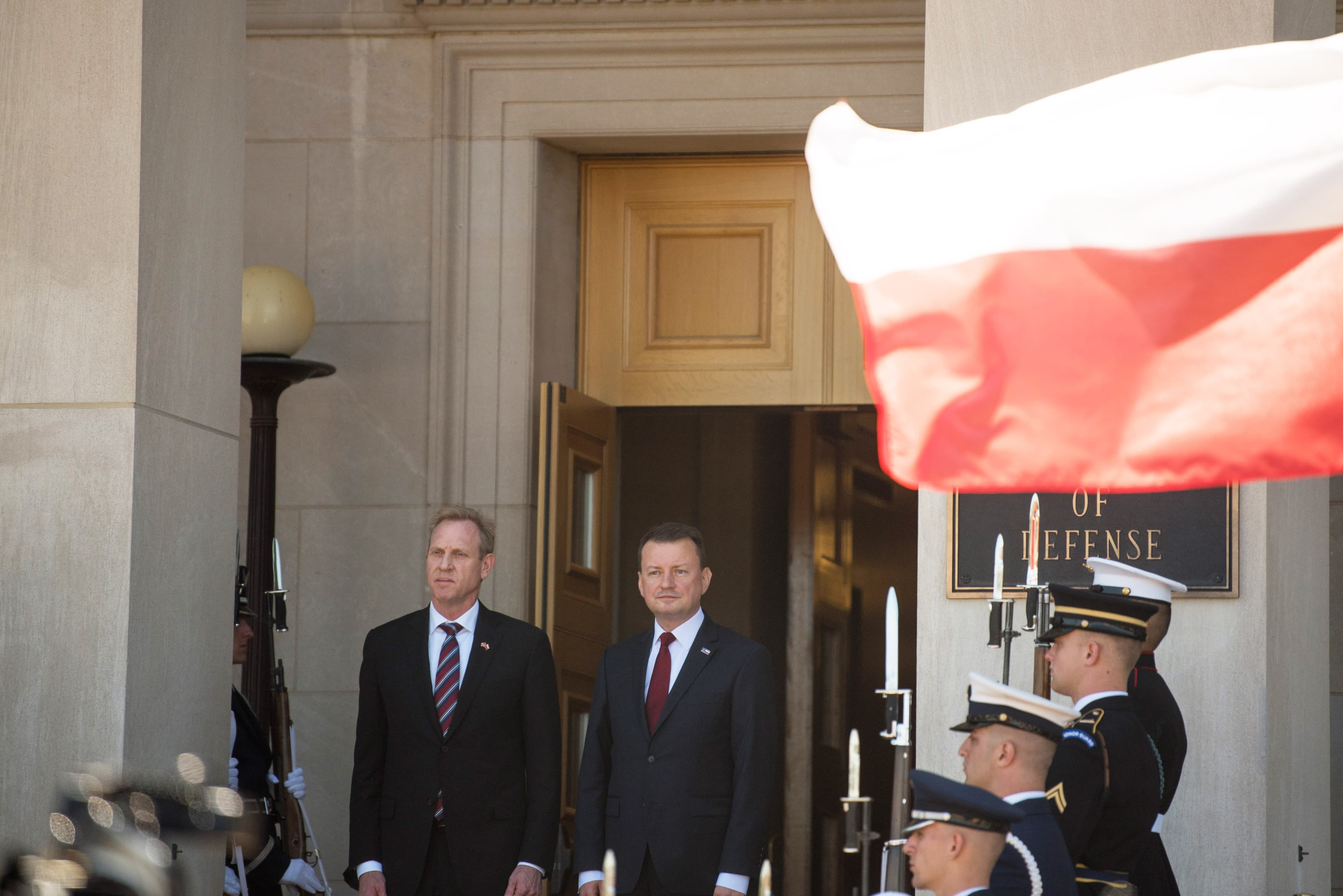Poland"s Defense Spending Soars
Poland stands on the precipice of militarization, with a staggering $6 billion deal to acquire K2 Black Panther tanks from South Korea. This agreement, finalized on July 2, 2025, not only marks a record high for Poland"s defense budget but also reflects a broader trend of rising military expenditures across Eastern Europe as nations grapple with the specter of Russian expansionism.
According to AP News, Poland"s defense budget is set to reach a staggering 187 billion zlotys (approximately $48.7 billion) in 2025, a 10% increase from the previous year. This commitment is fueled by fears that a victorious Russia, emboldened by its ongoing military actions in Ukraine, will set its sights on Poland next. The Polish government’s strategy is clear: build a military infrastructure robust enough to deter any potential threats from Moscow.
Military Buildup as a Response to Russian Threat
Poland"s decision to invest heavily in military capabilities is a direct reaction to the changing geopolitical landscape in Europe. With Russia"s invasion of Ukraine demonstrating a willingness to use force to achieve territorial ambitions, Poland seeks to transform its military into a formidable deterrent. The K2 Black Panther, hailed for its advanced technology and combat readiness, is central to this effort. It boasts a 120mm smoothbore gun and an impressive rate of fire, coupled with state-of-the-art defensive systems to counter modern threats.
This military buildup raises critical questions about the long-term implications for regional security. The perception of an imminent threat from Russia has prompted Poland to follow a path of militarization that is increasingly common among its neighbors. As reported by Reuters, Poland"s leaders view this investment as necessary for national security, yet it risks escalating tensions in an already volatile region.

Poland completes negotiations to buy South Korean K2 tanks ...
Partnership with South Korea Advances Military Objectives
The partnership with South Korea is significant not only for its immediate military implications but also for the broader geopolitical realignment taking place in Europe. As the U.S. reduces its military footprint in the region, Poland"s pivot towards South Korea highlights a shift in defense procurement strategies. This deal, which includes the production of 63 tanks in Poland through collaboration between Hyundai Rotem and PGZ, represents a growing trend of defense cooperation that could set a precedent for other nations looking to bolster their military capabilities amidst shifting alliances.
Moreover, South Korea’s K2 Black Panther tanks are not just a purchase; they symbolize a deepening strategic relationship between Warsaw and Seoul. This relationship is not merely transactional; it reflects a shared commitment to countering authoritarian aggression and ensuring regional stability. The success of this partnership could pave the way for similar collaborations across the globe, potentially reshaping the landscape of international defense relations.
Consequences of Militarization
The consequences of Poland"s military expansion are far-reaching and complex. While the Polish government portrays this buildup as a necessary step for national security, critics warn of the dangers of escalating militarization. The arms race in Eastern Europe could inadvertently lead to greater instability and provoke a more aggressive response from Russia. The historical context cannot be ignored; regional shifts in military power have often led to conflict rather than deterrence.
The focus on military spending diverts critical resources from social programs that could enhance civil rights and democratic governance in Poland. With record expenditures in defense, the risk is that vital funding for education, healthcare, and social services may be compromised, exacerbating inequalities within Polish society. As the government prioritizes military readiness over the well-being of its citizens, it raises profound questions about the direction of Polish democracy and the values it seeks to uphold.

Warsaw Poland 9 July 2024 Building of The Chancellery of the ...
Global Implications of Poland"s Military Strategy
The implications of Poland"s military buildup extend beyond its borders, affecting global security dynamics. As Eastern European nations like Poland ramp up defense spending, they may inadvertently push other countries to follow suit, leading to a regional arms race that could destabilize Europe further. The focus on military solutions to security challenges overlooks the importance of diplomatic engagement and conflict resolution.
Furthermore, the U.S. must reassess its role in European security. As American commitment wanes, reliance on military partnerships like that with South Korea becomes critical. However, this reliance raises concerns about the long-term sustainability of such partnerships, especially in light of shifting global priorities.
Poland"s military strategy underscores the urgent need for a re-evaluation of how nations perceive security and the role of military power in achieving it. The question remains: can Poland"s aggressive militarization truly serve as a deterrent, or will it spiral into a cycle of fear and retaliation that undermines the very stability it seeks to achieve?



![[Video] Gunfire between Iraqi security forces and Sadr militias in Baghdad](/_next/image?url=%2Fapi%2Fimage%2Fthumbnails%2Fthumbnail-1768343508874-4redb-thumbnail.jpg&w=3840&q=75)
